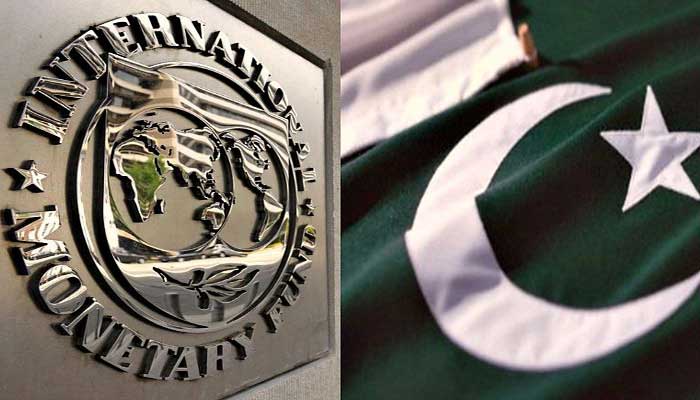‘Pakistan needs IMF despite Arab rescue’
“We reckon the government’s much-awaited decision to seek IMF assistance is a step in the right direction and accordingly set the stage for a much-needed repair of Pakistan’s external account,” it added.
KARACHI: Saudi Arabia’s rescue package and financial support commitment from China do not obviate the need for Pakistan’s entry into International Monetary Fund (IMF) loan program due to size of the funding gap, a brokerage said on Friday.
So far the government has received commitment of $9 billion – $6 billion from Saudi Arab and $3 billion from UAE – which can grow to $13 to 15 billion.
“Despite drop in current account deficit, we reckon the size of the deficit remains high for two reasons: current FX (foreign exchange) reserves situation and impending repayments, more skewed towards 2HFY19,” BMA Capital said in a report.
“Given the funding gap of $8 10 billion, the government will also need to build up foreign exchange reserves by issuing Euro/overseas bonds and seeking support from friendly countries.”
The brokerage said the uncertainty about entry in a fresh IMF program exacerbated the situation.
“We reckon the government’s much-awaited decision to seek IMF assistance is a step in the right direction and accordingly set the stage for a much-needed repair of Pakistan’s external account,” it added.
“We are optimistic on Pakistan meeting preconditions and expect tangible progress by mid-January 2019.” Current account deficit (CAD) is expected to drop to $13.5 billion in FY2019 and $8.5 billion in FY2020. The estimate does not include deferred oil facility of $3 billion as agreed with Saudi Arabia.
“Supported by softness in crude oil prices and slowdown in economic activity, the outlook on CAD has improved,” BMA Capital said. The brokerage said economic growth seems to be an inevitable victim of the underlying objective of consolidation and slowing down domestic demand.
“While we appreciate the government’s recent policy actions on monetary policy and exchange rate fronts, we continue to see more room for similar stabilisation measures ahead, particularly focused on fiscal side.”
BMA Capital expected key focus areas to contain fiscal deficit at five percent in FY19 to be reduction in subsidies, cut in spending on social support, possibility of new corporate tax, or additional tax on banks, and increase in general sales tax.
“We now expect Pakistan’s GDP growth rate to drop to 3.7 percent in FY19 versus our earlier estimate of 4.6 percent,” it said. The brokerage said risks to growth outlook stems from the expected lower growth in agriculture and large-scale manufacturing sectors.
BMA Capital expected inflation to pick further up. “(Rupee) devaluation, increase in utility prices, and increase in import duties will likely drive up inflation from an average of 3.9 percent in FY18 to 7.2 percent in FY19.”
Yet, the inflationary spurt seen in 2008 – 20 percent monthly consumer price index inflation – is unlikely to be repeated. “The two major drivers of inflation, oil prices and agriculture products, are largely in control,” the brokerage said. “We expect the central bank to raise policy rate by at least another 50 basis points in the third quarter of this fiscal year before pausing its rate hike campaign.”
-
 Factory Explosion In North China Leaves Eight Dead
Factory Explosion In North China Leaves Eight Dead -
 Blac Chyna Opens Up About Her Kids: ‘Disturb Their Inner Child'
Blac Chyna Opens Up About Her Kids: ‘Disturb Their Inner Child' -
 Winter Olympics 2026: Milan Protestors Rally Against The Games As Environmentally, Economically ‘unsustainable’
Winter Olympics 2026: Milan Protestors Rally Against The Games As Environmentally, Economically ‘unsustainable’ -
 How Long Is The Super Bowl? Average Game Time And Halftime Show Explained
How Long Is The Super Bowl? Average Game Time And Halftime Show Explained -
 Natasha Bure Makes Stunning Confession About Her Marriage To Bradley Steven Perry
Natasha Bure Makes Stunning Confession About Her Marriage To Bradley Steven Perry -
 ChatGPT Caricature Prompts Are Going Viral. Here’s List You Must Try
ChatGPT Caricature Prompts Are Going Viral. Here’s List You Must Try -
 James Pearce Jr. Arrested In Florida After Alleged Domestic Dispute, Falcons Respond
James Pearce Jr. Arrested In Florida After Alleged Domestic Dispute, Falcons Respond -
 Cavaliers Vs Kings: James Harden Shines Late In Cleveland Debut Win
Cavaliers Vs Kings: James Harden Shines Late In Cleveland Debut Win -
 2026 Winter Olympics Snowboarding: Su Yiming Wins Bronze And Completes Medal Set
2026 Winter Olympics Snowboarding: Su Yiming Wins Bronze And Completes Medal Set -
 Trump Hosts Honduran President Nasry Asfura At Mar-a-Lago To Discuss Trade, Security
Trump Hosts Honduran President Nasry Asfura At Mar-a-Lago To Discuss Trade, Security -
 Cuba-Canada Travel Advisory Raises Concerns As Visitor Numbers Decline
Cuba-Canada Travel Advisory Raises Concerns As Visitor Numbers Decline -
 Anthropic Buys 'Super Bowl' Ads To Slam OpenAI’s ChatGPT Ad Strategy
Anthropic Buys 'Super Bowl' Ads To Slam OpenAI’s ChatGPT Ad Strategy -
 Prevent Cancer With These Simple Lifestyle Changes
Prevent Cancer With These Simple Lifestyle Changes -
 Air Canada Flight Diverted St John's With 368 Passengers After Onboard Incident
Air Canada Flight Diverted St John's With 368 Passengers After Onboard Incident -
 Experts Reveal Keto Diet As Key To Treating Depression
Experts Reveal Keto Diet As Key To Treating Depression -
 Inter Miami Vs Barcelona SC Recap As Messi Shines With Goal And Assist
Inter Miami Vs Barcelona SC Recap As Messi Shines With Goal And Assist




